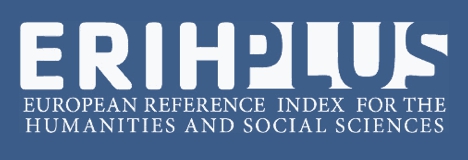Pronera/uva: naratives on teacher’s education
Abstract
This paper corresponds to a investigation on teacher's formation from the (PRONERA/UVA) in Sobral city, State of Ceará, - Brazil. We refer to the methodology of Oral History as an attempt to better demonstrate and discuss the subject's experiences and their version about the realization of the program in daily life in their community. For this, We analysed the narratives of two teachers from Schools of the field of Ceará and students of UVA. We consider that through the narratives and consequently of the valuation of the subjects the formation of educators start from a critical reflection of the Person and his role in society. We suggest, therefore, that PRONERA helps in this process; however, it's the life trajectory of each one of these teachers and their individual and collective practices that directs the intensity of this formative process.
References
ALMEIDA, Paulo Roberto de. “Cada um tem um sonho diferente”: histórias e narrativas de trabalhadores no movimento de luta pela terra. In: MACIEL, Laura Antunes e outros (Org.). Outras histórias: memórias e linguagens. São Paulo: Olho D’Água, 2006.
BOURDIEU, Pierre. A ilusão biográfica. In: FERREIRA, Marieta. AMADO, Janaína (org.) Usos e abusos da História Oral. 3ª ed. Rio de Janeiro: Editora FGV, 2000.
BRASIL. Programa Nacional de Educação na Reforma Agrária – PRONERA. Brasília, abril de 2004.
BRASIL. Programa Nacional de Educação na Reforma Agrária MANUAL DE OPERAÇÕES. Aprovado pela Portaria/INCRA/P/Nº 19, de15.01.2016 Brasília-DF, 15 Janeiro de 2016.
DINIZ, Aldiva Sales. PRONERA/Sobral: Relatos de uma Experiência. Revista da Casa da Geografia de Sobral, Sobral, v. 4/5, p. 115-129, 2002/2003.
EDITAL 01 / 2014. Seleção pública específica para provimento de vagas no Curso de Segunda Licenciatura em Geografia e no Curso de Segunda Licenciatura em História em Convênio com o INCRA/PRONERA.
FERNANDES, Bernardo Mançano.; MOLINA, Mônica Castagna. O campo da Educação do Campo. In: Mônica Castagna Molina; Sonia Meire Santos Azevedo de Jesus. (Org.). Por uma Educação do Campo. 1ed.Brasília: NEAD, 2004, v. 5, p. 53-89.
FREITAS, Nilson Almino de. Narrativas sobre o espaço: o pesquisador, o narrador e a cidade. Antíteses, v.5, n. 10, p. 833-853, jul./dez. 2012.
KHOURY, Yara Aun. O historiador, as fontes orais e a escrita da história. In: MACIEL, Laura Antunes e outros (Org.). Outras histórias: memórias e linguagens. São Paulo: Olho D’Água, 2006.
KOLLING, Edgar Jorge; CERIOLI, Paulo R.; CALDART, Roseli Salete (orgs). Por uma educação do campo: identidades e políticas públicas. 2ª edição. Brasília, 2002.
LÖWY, MICHAEL. Ideologias e ciência social: elementos para uma análise marxista. – São Paulo: Cortez, 1985.
MOTA, Maria Eleusa. Movimento dos Trabalhadores Rurais Sem Terra – MST e Escola Nacional Florestan Fernandes – ENFF: a construção da Educação do Campo no Brasil. (Dissertação de Mestrado) – Universidade Federal de Uberlândia, Programa de Pós-Graduação, 2015.
MST. Princípios da Educação no MST. Caderno de Educação nº 8. Porto Alegre, 1996
SOUZA, Maria Deuselena Dias de. Do terreiro de casa ao chão da escola: um caminho de práticas pedagógicas e práticas sociais construídas à luz da pedagogia da alternância. O caso da Escola Família Agrícola Dom Fragoso. (Dissertação de Mestrado) Programa de Pós-Graduação em Educação Brasileira, da Faculdade de Educação da Universidade Federal do Ceará. – Fortaleza: UFC, 2015.
RIBEIRO, Marlene. Movimento camponês, trabalho e educação: liberdade, autonomia, emancipação: princípios/fins da formação humana. 1. Ed. São Paulo: Expressão Popular, 2011.
SALES, Telma Bessa. “A verdade é essa... você se acostumando com a qualidade de vida ruim”: médicos cearenses e o trabalho em mutação. História & Perspectivas, n.42, jan/jun. 2010.
STÉDILE, João, Pedro. FERNANDES, Bernardo Mançano. Brava gente: A trajetória do MST e a luta pela terra no Brasil.2 ed. São Paulo: Expressão Popular, 2012.
Keywords
Policy Proposal for Free Access Journals
Authors who publish in this journal agree to the following terms:
a. Authors retain the copyright and grant the journal the right of first publication, with the work simultaneously licensed under the Creative Commons Attribution License which allows the sharing of the work with acknowledgment of the authorship of the work and initial publication in this journal.
b. Authors are authorized to take additional contracts separately, for non-exclusive distribution of the version of the work published in this journal (eg publish in institutional repository or as a book chapter), with acknowledgment of authorship and initial publication in this journal.
c. Authors are allowed and encouraged to publish and distribute their work online (eg in institutional repositories or on their personal page) at any point before or during the editorial process, as this can generate productive changes, as well as increase the impact and The citation of published work (See The Effect of Free Access).





















